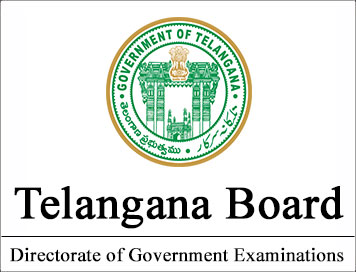Telangana State Board CLASS-12 Syllabus - Chemistry
Disclaimer: This website is NOT associated with CBSE, for official website of CBSE visit - www.cbse.gov.in
(Download) Telangana Board Exam CLASS-12 Syllabus
Exam Name : Telangana Board Exam CLASS-12 Syllabus
Subject : Chemistry
Year : 2013-14
Chapter 1: SOLID STATE
1.1 General characteristics of solid state1.2 Amorphous and
crystalline solids 1.3 Classification of crystalline solids based on
different binding forces (molecular, ionic, metallic and covalent
solids )1.4 Probing the structure of solids: X-ray crystallography
1.5 Crystal lattices and unit cells .Bravais lattices primitive and
centred unit cells 1.6 Number of atoms in a unit cell (primitive,
body centred and face centred cubic unit cell)1.7 Close packed
structures: Close packing in one dimension, in two dimensions and
in three dimensions- tetrahedral and octahedral voids- formula of a
compound and number of voids filled- locating tetrahedral and
octahedral voids 1.8 Packing efficiency in simple cubic, bcc and in
hcp, ccp lattice. 1.9 Calculations involving unit cell dimensionsdensity
of the unit cell. 1.10 Imperfections in solids-types of point
defects-stoichiometric and non-stoichiometric defects 1.11
Electrical properties-conduction of electricity in metals,
semiconductors and insulators- band theory of metals 1.12
Magnetic properties
10
CHAPTER - 2 PERIODS
Chapter 2: SOLUTIONS
2.1 Types of solutions 2.2 Expressing concentration of solutionsmass
percentag, volume percentage, mass by volume percentage,
parts per million, mole fraction, molarity and molality 2.3
Solubility: Solubility of a solid in a liquid, solubility of a gas in a
liquid,Henry’s law 2.4 Vapour pressure of liquid solutions: vapour
pressure of liquid- liquid solutions. Raoult’s law as a special case
of Henry’s law -vapour pressure of solutions of solids in liquids 2.5
Ideal and non-ideal solutions 2.6 Colligative properties and
determination of molar mass-relative lowering of vapour pressureelevation
of boiling point-depression of freezing point-osmosis and
osmotic pressure-reverse osmosis and water purification.
2.7Abnormal molar masses-van’t Hoff factor
Click Here to Download
Courtesy: Telangana Board
